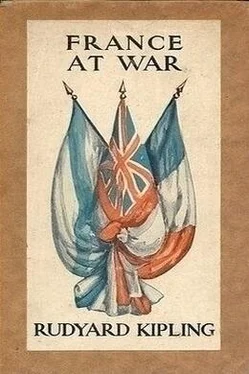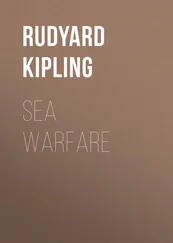Rudyard Kipling - France at War
Здесь есть возможность читать онлайн «Rudyard Kipling - France at War» весь текст электронной книги совершенно бесплатно (целиком полную версию без сокращений). В некоторых случаях можно слушать аудио, скачать через торрент в формате fb2 и присутствует краткое содержание. Год выпуска: 2014, Издательство: epubBooks Classics, Жанр: Биографии и Мемуары, prose_military, на английском языке. Описание произведения, (предисловие) а так же отзывы посетителей доступны на портале библиотеки ЛибКат.
- Название:France at War
- Автор:
- Издательство:epubBooks Classics
- Жанр:
- Год:2014
- ISBN:нет данных
- Рейтинг книги:4 / 5. Голосов: 1
-
Избранное:Добавить в избранное
- Отзывы:
-
Ваша оценка:
- 80
- 1
- 2
- 3
- 4
- 5
France at War: краткое содержание, описание и аннотация
Предлагаем к чтению аннотацию, описание, краткое содержание или предисловие (зависит от того, что написал сам автор книги «France at War»). Если вы не нашли необходимую информацию о книге — напишите в комментариях, мы постараемся отыскать её.
and
.
France at War — читать онлайн бесплатно полную книгу (весь текст) целиком
Ниже представлен текст книги, разбитый по страницам. Система сохранения места последней прочитанной страницы, позволяет с удобством читать онлайн бесплатно книгу «France at War», без необходимости каждый раз заново искать на чём Вы остановились. Поставьте закладку, и сможете в любой момент перейти на страницу, на которой закончили чтение.
Интервал:
Закладка:
IN THE CATHEDRAL
"Nonsense," said an officer. "Who should be singing here?" We circled the cathedral again, and saw what pavement–stones can do against their own city, when the shell jerks them upward. But there was singing after all—on the other side of a little door in the flank of the cathedral. We looked in, doubting, and saw at least a hundred folk, mostly women, who knelt before the altar of an unwrecked chapel. We withdrew quietly from that holy ground, and it was not only the eyes of the French officers that filled with tears. Then there came an old, old thing with a prayer–book in her hand, pattering across the square, evidently late for service.
"And who are those women?" I asked.
"Some are caretakers; people who have still little shops here. (There is one quarter where you can buy things.) There are many old people, too, who will not go away. They are of the place, you see."
"And this bombardment happens often?" I said.
"It happens always. Would you like to look at the railway station? Of course, it has not been so bombarded as the cathedral."
We went through the gross nakedness of streets without people, till we reached the railway station, which was very fairly knocked about, but, as my friends said, nothing like as much as the cathedral. Then we had to cross the end of a long street down which the Boche could see clearly. As one glanced up it, one perceived how the weeds, to whom men's war is the truce of God, had come back and were well established the whole length of it, watched by the long perspective of open, empty windows.
II
The Nation's Spirit and a New Inheritance
We left that stricken but undefeated town, dodged a few miles down the roads beside which the women tended their cows, and dropped into a place on a hill where a Moroccan regiment of many experiences was in billets.
They were Mohammedans bafflingly like half a dozen of our Indian frontier types, though they spoke no accessible tongue. They had, of course, turned the farm buildings where they lay into a little bit of Africa in colour and smell. They had been gassed in the north; shot over and shot down, and set up to be shelled again; and their officers talked of North African wars that we had never heard of—sultry days against long odds in the desert years ago. "Afterward—is it not so with you also?—we get our best recruits from the tribes we have fought. These men are children. They make no trouble. They only want to go where cartridges are burnt. They are of the few races to whom fighting is a pleasure."
"And how long have you dealt with them?"
"A long time—a long time. I helped to organize the corps. I am one of those whose heart is in Africa." He spoke slowly, almost feeling for his French words, and gave some order. I shall not forget his eyes as he turned to a huge, brown, Afreedee–like Mussulman hunkering down beside his accoutrements. He had two sides to his head, that bearded, burned, slow–spoken officer, met and parted with in an hour.
The day closed—(after an amazing interlude in the chateau of a dream, which was all glassy ponds, stately trees, and vistas of white and gold saloons. The proprietor was somebody's chauffeur at the front, and we drank to his excellent health) —at a little village in a twilight full of the petrol of many cars and the wholesome flavour of healthy troops. There is no better guide to camp than one's own thoughtful nose; and though I poked mine everywhere, in no place then or later did it strike that vile betraying taint of underfed, unclean men. And the same with the horses.
THE LINE THAT NEVER SLEEPS
It is difficult to keep an edge after hours of fresh air and experiences; so one does not get the most from the most interesting part of the day—the dinner with the local headquarters. Here the professionals meet—the Line, the Gunners, the Intelligence with stupefying photo–plans of the enemy's trenches; the Supply; the Staff, who collect and note all things, and are very properly chaffed; and, be sure, the Interpreter, who, by force of questioning prisoners, naturally develops into a Sadducee. It is their little asides to each other, the slang, and the half–words which, if one understood, instead of blinking drowsily at one's plate, would give the day's history in little. But tire and the difficulties of a sister (not a foreign) tongue cloud everything, and one goes to billets amid a murmur of voices, the rush of single cars through the night, the passage of battalions, and behind it all, the echo of the deep voices calling one to the other, along the line that never sleeps.
The ridge with the scattered pines might have hidden children at play. Certainly a horse would have been quite visible, but there was no hint of guns, except a semaphore which announced it was forbidden to pass that way, as the battery was firing. The Boches must have looked for that battery, too. The ground was pitted with shell holes of all calibres—some of them as fresh as mole–casts in the misty damp morning; others where the poppies had grown from seed to flower all through the summer.
"And where are the guns?" I demanded at last.
They were almost under one's hand, their ammunition in cellars and dug–outs beside them. As far as one can make out, the 75 gun has no pet name. The bayonet is Rosalie the virgin of Bayonne, but the 75, the watchful nurse of the trenches and little sister of the Line, seems to be always "soixante– quinze." Even those who love her best do not insist that she is beautiful. Her merits are French—logic, directness, simplicity, and the supreme gift of "occasionality." She is equal to everything on the spur of the moment. One sees and studies the few appliances which make her do what she does, and one feels that any one could have invented her.
FAMOUS FRENCH 75's
"As a matter of fact," says a commandant, "anybody—or, rather, everybody did. The general idea is after such–and–such system, the patent of which had expired, and we improved it; the breech action, with slight modification, is somebody else's; the sighting is perhaps a little special; and so is the traversing, but, at bottom, it is only an assembly of variations and arrangements."
That, of course, is all that Shakespeare ever got out of the alphabet. The French Artillery make their own guns as he made his plays. It is just as simple as that.
"There is nothing going on for the moment; it's too misty," said the Commandant. (I fancy that the Boche, being, as a rule methodical, amateurs are introduced to batteries in the Boche's intervals. At least, there are hours healthy and unhealthy which vary with each position.) "But," the Commandant reflected a moment, "there is a place—and a distance. Let us say . . . " He gave a range.
The gun–servers stood back with the bored contempt of the professional for the layman who intrudes on his mysteries. Other civilians had come that way before—had seen, and grinned, and complimented and gone their way, leaving the gunners high up on the bleak hillside to grill or mildew or freeze for weeks and months. Then she spoke. Her voice was higher pitched, it seemed, than ours—with a more shrewish tang to the speeding shell. Her recoil was as swift and as graceful as the shrug of a French–woman's shoulders; the empty case leaped forth and clanged against the trail; the tops of two or three pines fifty yards away nodded knowingly to each other, though there was no wind.
"They'll be bothered down below to know the meaning of our single shot. We don't give them one dose at a time as a rule," somebody laughed.
We waited in the fragrant silence. Nothing came back from the mist that clogged the lower grounds, though no shell of this war was ever launched with more earnest prayers that it might do hurt.
Читать дальшеИнтервал:
Закладка:
Похожие книги на «France at War»
Представляем Вашему вниманию похожие книги на «France at War» списком для выбора. Мы отобрали схожую по названию и смыслу литературу в надежде предоставить читателям больше вариантов отыскать новые, интересные, ещё непрочитанные произведения.
Обсуждение, отзывы о книге «France at War» и просто собственные мнения читателей. Оставьте ваши комментарии, напишите, что Вы думаете о произведении, его смысле или главных героях. Укажите что конкретно понравилось, а что нет, и почему Вы так считаете.












